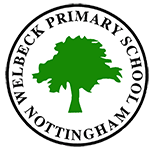Year 5
Children learn to:
Speak and listen for a wide range of purposes in different contexts
1. Speaking
- tell a story using notes designed to cue techniques, such as repetition, recap and humour
- present a spoken argument, sequencing points logically, defending views with evidence and making use of persuasive language
- use and explore different question types
2. Listening and Responding
- identify different question types and evaluate impact on audience
- identify some aspects of talk which vary between formal and informal occasions
- analyse the use of persuasive language
3. Group discussion and interaction
- plan and manage a group task over time using different levels of planning
- understand different ways to take the lead and support others in groups
- understand the process of decision making
4. Drama
- reflect on how working in role helps to explore complex issues
- perform a scripted scene making use of dramatic conventions
- use and recognise the impact of theatrical effects in drama
Read a wide range of texts on screen and on paper
5. Word reading skills and strategies
- use knowledge of words, roots, derivations and spelling patterns to read unknown words
6. Understanding and interpreting texts
- make notes on and use evidence from across a text to explain events or ideas
- infer writers’ perspectives from what is written and from what is implied
- compare different types of narrative and information texts and identify how they are structured
- explore how writers use language for comic and dramatic effects
7. Engaging with and responding to texts
- reflect on reading habits and preferences and plan personal reading goals
- compare the usefulness of techniques such as visualisation, prediction, empathy in exploring the meaning of texts
- compare how a common theme is presented in poetry, prose and other media
Write a wide range of texts on paper and on screen
8. Creating and shaping texts
- reflect independently and critically on own writing and edit and improve it
- experiment with different narrative forms and styles to write their own stories
- adapt non-narrative forms and styles to write fiction or factual texts, including poems
- vary pace and develop viewpoint through the use of direct and reported speech, portrayal of action, selection of detail
- create multi-layered texts, including use of hyperlinks, linked web pages
9. Text structure and organisation
- experiment with the order of sections and paragraphs to achieve different effects
- change the order of material within a paragraph, moving the topic sentence
10. Sentence structure and punctuation
- adapt sentence construction to different text types, purposes and readers
- punctuate sentences accurately, including use of speech marks and apostrophes
11. Word structure and spelling
- spell words containing unstressed vowels and more complex prefixes and suffixes, e.g. im-, ir-, -tion, -cian.
- group and classify words with regular spelling patterns and their meanings
12. Presentation
- adapt handwriting to specific purposes, e.g. printing, use of italics
use a range of ICT programmes to present texts

